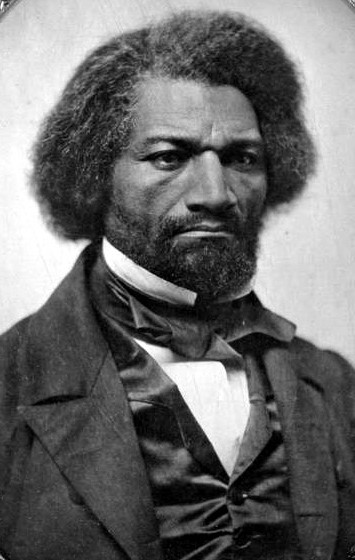
Forming the 54th Massachusetts Infantry

Frederick Douglass, 1856; pbs.org
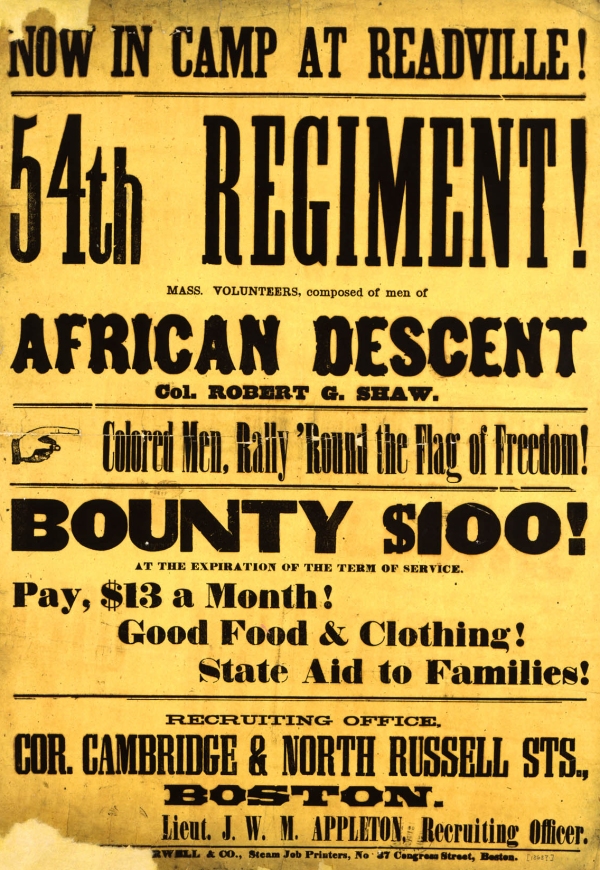
Broadside. Boston: J.E.Fawell & Co. [1863?]. masshist.org
Frederick Douglass "...implored the imperiled nation to unchain against her foes, her powerful black hand." ~Speech, March 21, 1863
"Once let the black man get upon his person the brass letters U.S., let him get an eagle on his button, and a musket on his shoulder and bullets in his pocket, there is no power on earth that can deny that he has earned full citizenship."
~Frederick Douglass quoted in Whitehair, 20.

To Colored Men! Recruitment Poster~1863~National Archives
Identifier: 1497351
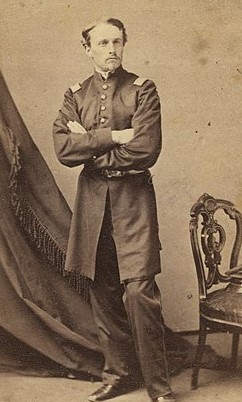
Lt Robert Gould Shaw~Gladstone Collection of African American Photographs
Governor Andrew "spoke of the exceptional character of the regiment, as marking an era in the history of the war, the Commonwealth, the country, and humanity."
Chicago Tribune ~ 21 May 1863
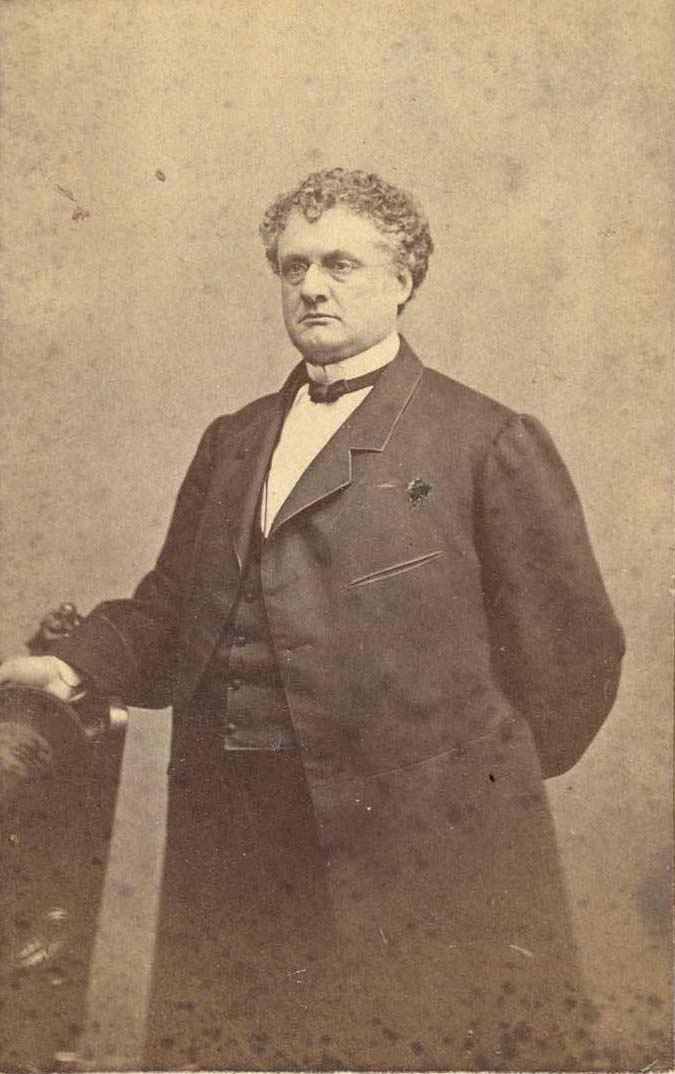
Carte de visite portrait of 25th Governor of Massachusetts John A. Andrew (1818-1867, served 1861-1866), by J. W. Black, of Boston
“Field and line officers have been selected by Governor Andrew, of Massachusetts, with a sole view of combining the rare qualities of good military ability, experience and a warm sympathy with the cause they espouse.”
~Cleveland Daily Leader (Cleveland, Ohio)~23 Jun 1863
Obstacles:
~ 1792 federal law prohibited African Americans from bearing arms in the United States military.
~Many did not believe that African Americans were "men."
~There was a belief that blacks would not fight.
~Most thought the military was a "white space" and the Civil War was a "white man's fight" to preserve the Union. No one knew if white volunteer soldiers would fight alongside black soldiers.
~Many feared arming blacks because they felt blacks could not be trusted.
~African American soldiers were not seen as equal and were originally paid much less than white soldiers.
~Blacks in society had few rights; they had no power to address their grievances.
~Black soldiers faced the risk of being tortured and/or sold into slavery if captured by the Confederate army.
~Jefferson Davis, the president of the Confederacy, promised to put to death any African American soldier captured during the War.
~All of this in addition to the risk of dying in battle!
Allies:
~Soldiers were recruited by black abolitionists, including Major Martin Robison Delany and Frederick Douglass.
~The free black community of Boston supported African American recruitment.
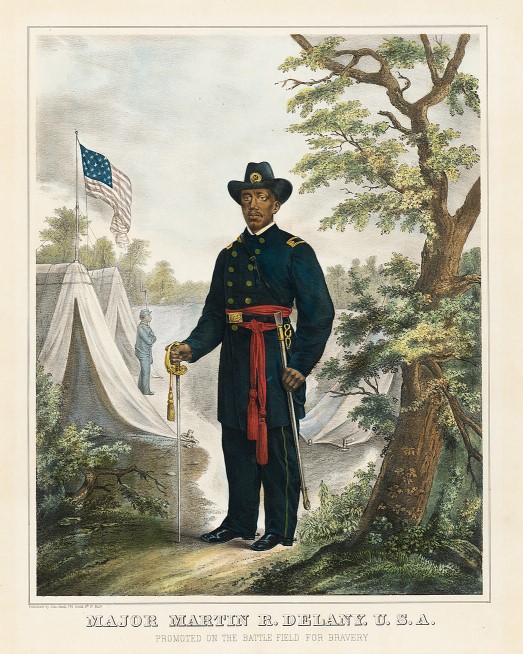
Major Martin Robinson Delany~National Portrait Gallery~Unknown Artist~ca 1865
Time to Get Started
Emancipation Proclamation authorizing African American troops~1 Jan 1863~National Archives.
~ 1 January 1863: The Emancipation Proclamation authorizes the formation of African American units.
~ 26 January 1863: Secretary of War Edwin Stanton gives Massachusetts Governor Andrew authorization to call for volunteers.
~ Early 1863: Troops begin training at Camp Meigs, Readville, Massachusetts.
~ 28 May 1863: Under the command of Colonel Robert Gould Shaw, son of an abolitionist, the Regiment marches through Boston on the way to their post at Beaufort, South Carolina.
Recruits came from
Providence, Rhode Island; Philadelphia, Pennsyvlania; Elmira and New York City, New York; "and even as far away as Ohio, Michigan, the West Indies and Canada." ~Whitehair, 25.
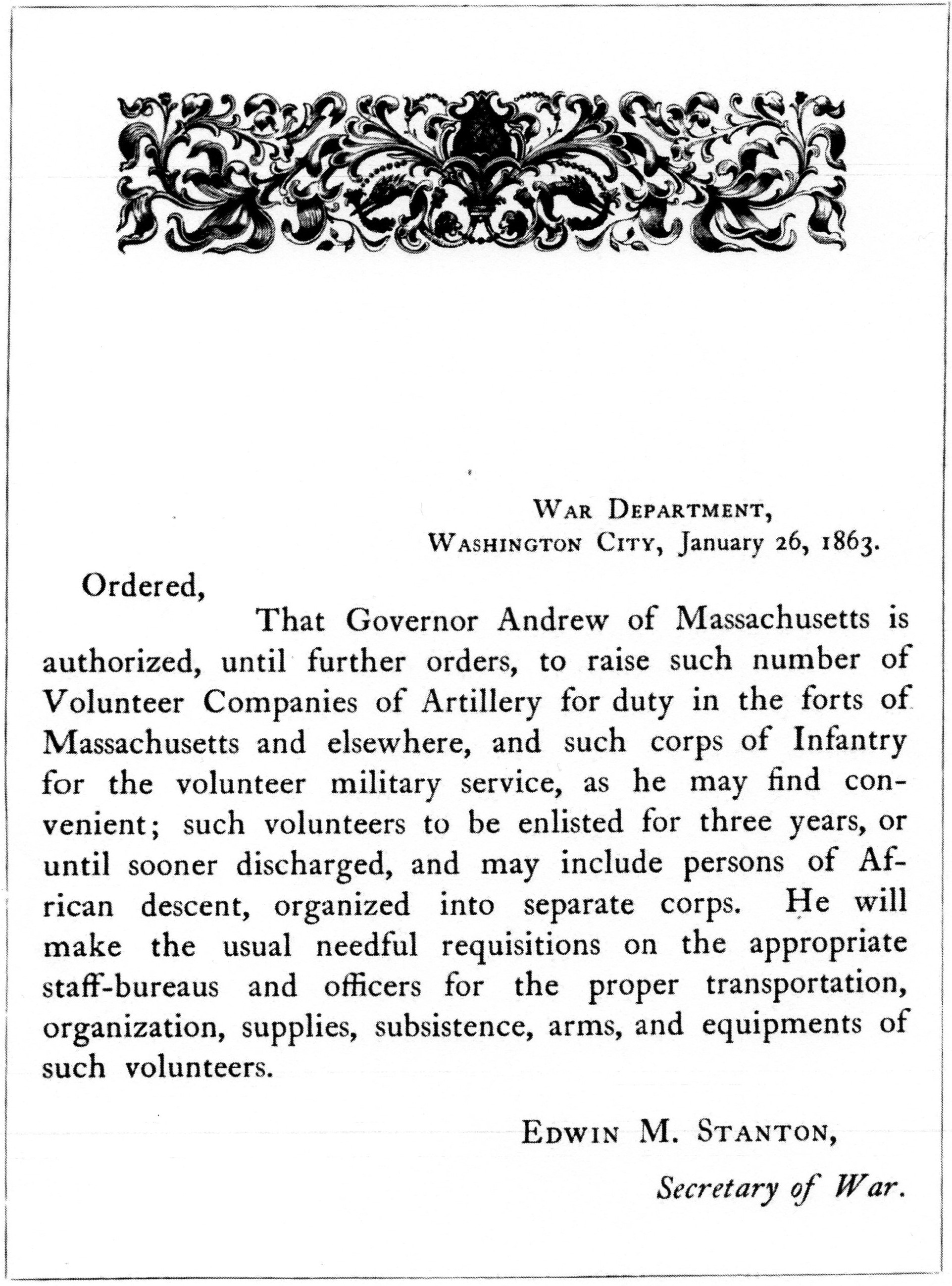
Stanton Letter from Whitehair, page 26
“Some of the colored people of Boston object to the officering of the regiment with white officers, but their objections will no doubt be overcome.”
~Semi-Weekly Wisconsin (Milwaukee, Wisconsin)~20 Feb 1863
The 54th Massachusetts Infantry Regiment was the second African-American regiment, but the first to be authorized by the Federal government.
Painting by Mort Künstler.
"Col. Robert Shaw and the 54th Massachusetts."
Reproduced with Permission.
Mort Künstler. © Mort Künstler, Inc.